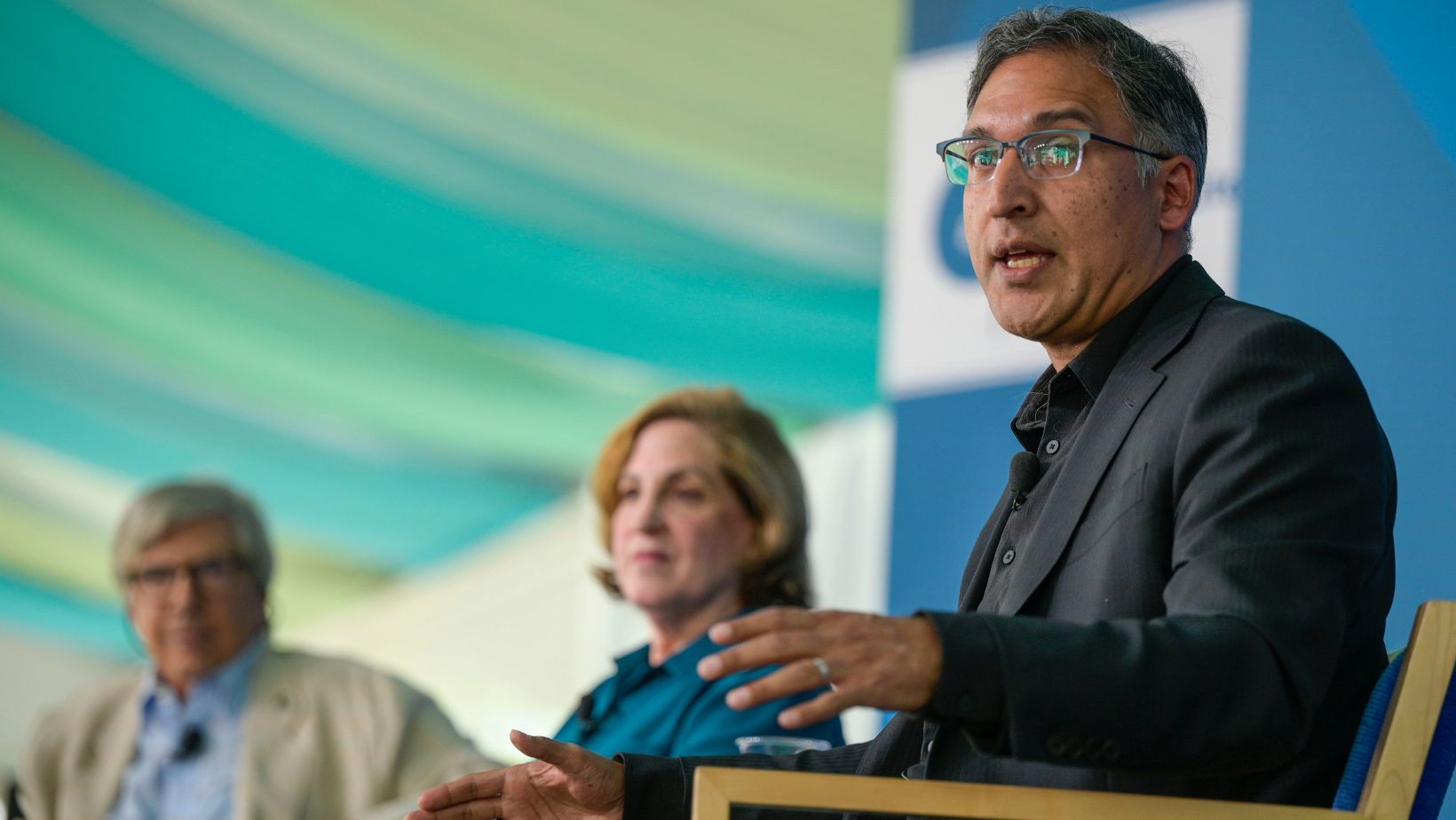Arturo Vargas, executive director of Naleo Educational Fund,recently contributed to the Aspen Institute Latinos and Society Program convening and report on Latino civic engagement, “Unlocking Latino Civic Potential: 2016 and Beyond” focusing on voting and the 2016 election. Vargas explains the national imperative for making long-term investments in mobilizing and including the Latino community in all aspects of American political life.
The eligible Latino electorate is expected to reach 27.3 million this November, growing more than any other voting group since 2008. With its growing size, the Latino vote has become increasingly influential in deciding state and local races, even flipping states’ longstanding partisan alignment.
Latinos are shaping America’s political landscape across the nation and will have a key say in electing the next President of the United States this November. History has shown us that candidates who choose to ignore the political power of the Latino community do so at their own peril.
Winning the Latino vote has become the equivalent of a presidential candidate’s Holy Grail. The Latino electorate helped seal the fate of Presidents George W. Bush in 2000 and 2004, and Barack Obama in 2008 and 2012, both of whom won a larger share of Latino votes than their political opponents in several key battleground states.
With less than 100 days until Election Day, NALEO Educational Fund projects that more than 13.1 million Latinos will turn out to vote this November, with the possibility of even more Latino voters casting ballots.
With so much to gain from attracting Latino voters, why do political parties and candidates continue to shy away from establishing real and meaningful relationships with them? Given the numbers, the Latino electorate is deserving of a long-term commitment rather than a last second appeal right before Election Day.
Latinos are savvy and sophisticated voters, and they know the difference. In 2014, a pre-election poll by NALEO Educational Fund and Latino Decisions found that more than half of the 5,000 Latino voters polled reported they had not been contacted by a candidate, party, or community organization asking for their vote. This is simply unacceptable.
Parties, candidates, donors, and funders need to focus on making Latinos full participants in our democracy for the years to come, not just in the 2016 election. Parties and candidates who engage Latino voters on issues of importance on a consistent basis in both English and Spanish will reap the rewards in the future.
Parties should be vying for the Latino vote, as it is definitely up for grabs. One of every four (23 percent) Latino voters polled did not identify as Republican or Democrat. A large number of Latinos said that support for their community, not a candidate or party, drove them to cast ballots in 2014.
Some Super PACs and funders have already started investing in Latinos this election season, concentrating efforts and funneling resources mostly in traditional battleground states like Colorado, Florida, and Nevada, and behind issue-driven messages like immigration reform. Latinos living in non-battleground states like California and Texas are frequently not on the receiving end of these outreach strategies, resulting in a lack of engagement for approximately 45 percent of all eligible Latino voters nationwide.
Continued short-term and narrowly targeted strategies won’t be enough to mobilize a sizable and diverse Latino electorate that has heard similar messages, promises, and ads in prior elections.
This is the year for parties, candidates and funders to see the enormous promise and potential of a real and sustained long-term Latino voter engagement strategy. It is time for our nation’s political leadership to make a serious commitment to the Latino electorate, including expanded outreach efforts to Latino voters in all states, not just battleground states.
In our own efforts to mobilize and empower Latino voters in advance of the 2016 election, NALEO Educational Fund will continue to operate its toll-free bilingual hotline 1- 888-VE-Y-VOTA (1-888-839-8682) year-round to provide assistance to individuals who may encounter problems casting ballots or have general questions about any aspect of the electoral process.
To date, the hotline has assisted more than 100,000 voters.
We will do our part in the coming months, but we also need parties and candidates to their part if we want Latino turnout to reach its full potential in 2016 and beyond.
This post is part of a blog series produced by the Aspen Institute Latinos and Society program. The Aspen Institute Latinos and Society Program aims to create broad awareness of the growth and importance of the Latino community to the future success of the United States. We do this by bringing together Latino and non-Latino influencers and decision-makers to find areas of common ground that advance issues and policies of importance to Latinos and the country as a whole. We also work to develop the leadership capacity of Latinos to participate fully in all levels of society.

